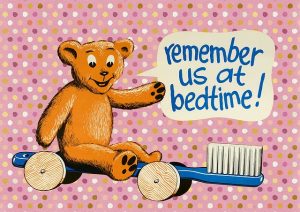Kids love playing and because they are fond of playing they are highly susceptible to picking up germs. It is important that your kids know more about personal hygiene since prevention is better than cure. You can teach hygiene through games.
Some children only rinse their hands quickly under water, if they wash at all. But hands should be scrubbed with an antibacterial soap for at least 15 to 20 seconds, as recommended by the CDC. Sprinkle glitter on your child’s hands and challenge him off to wash the glitter with soap and water. Because glitter is naturally sticky, it will take up to 30 seconds to scrub the glitter away. Then indicate that your child should scrub off germs like he did the glitter each time that he washes. Dr. Lynn C. Smitherman, assistant professor of pediatrics at Wayne State University, notes that washing hands can greatly reduce the spread of germs.
Teach children about the spread of germs by showing how germs can live on hands and the things they touch. Pretend to sneeze, and when you do, cover your hands in a washable paint. Then go about your business, touching things around the room. The kids will see the transfer of germs. After the exercise, have the kids find and tally all the surfaces where germs now live from your transferring them around the room.
Sourced from:http://www.livestrong.com/article/104096-games-teach-kids-personal-hygiene/
Your toddler loves filth as much as they love chocolate. You will need to teach them how important bath time is after a happy time in the dirt. They should also be taught how to cough and sneeze so that they don’t spread germs.
BathingYour child won’t be able to scrub in the tub by herself for several years, but she’s capable of learning the basics. Focus on the fact that taking a bath is a fun way to get clean, and narrate what you’re doing: “Mommy is putting soap on the washcloth to scrub your tummy.” Then see if she can copy you. Have her wash a doll’s hair. Then see if she can handle one step by herself, such as wetting her hair or making a suds sculpture after you’ve put in the shampoo. For rinsing, ask her to lean her head back and close her eyes. Having your child take an active role in these tasks can make her feel empowered and will encourage her to do even more as her motor skills improve, says Dr. Kuhn.
Coughing and sneezing etiquetteShow-and-tell is the best strategy for teaching your child these skills. Demonstrate what to do when you sneeze yourself (“See how I put a tissue over my nose and mouth so I didn’t spread germs?”). You can also model how to wipe a runny nose and cough into your elbow or sleeve. Teach your toddler to blow by pressing one nostril closed while she exhales gently through the other. Don’t expect her to master these techniques right away. “It’s difficult for a 1-year-old to recognize, ‘Hey, I’m about to sneeze or cough’ and act in time to cover up,” says Dr. Kuhn. If she’s too late, say, “You almost caught that sneeze. Nice try. I bet you’ll get it next time.” Kids are more in touch with their bodily cues by age 2, so keep working on it. You might take turns covering pretend coughs and sneezes, and let her practice proper hygiene with a stuffed-animal friend who has “a cold.”
Sourced from: http://www.parents.com/toddlers-preschoolers/development/social/hygiene-basics-for-kids/

Ensure that your kids dry their legs properly after taking a shower. This is an effective way of preventing fungal affection. You should also discourage the habit of nail biting. If they are too young, ensure that you cut their nails often.
Fungal Infections
Athlete’s foot and ringworms are also less likely to spread if correct hand washing is achieved. Children should be taught how to effectively wash their hands, including between the fingers and under the nails; employ the use of a nail brush if needed. Drying properly is also important to prevent fungal infections from becoming worse. Children should understand the importance of these actions also, as well as using an individual towel if they have an infectious complaint.
Nails
Nail biting should be discouraged, particularly if the nails are being swallowed. The nails and nail beds offer a perfect environment for germs to live and breed. Nail biting permits the transfer of these bugs to the mouth which can then lead to the digestive tract causing many problems. An incidence of diarrhoea can badly affect a child and they can become quite ill from electrolyte imbalance and dehydration; this can happen very quickly in the young. Even if correct hand washing takes place, there will continue to be some germs under and around the nail, if left they will not normally cause any harm, but transfer to the mouth can induce problems. Keeping nails short will help to reduce the amount of germs under the nail.
Sourced from: http://www.hygieneexpert.co.uk/importanceofgoodhygieneinchildren.html
